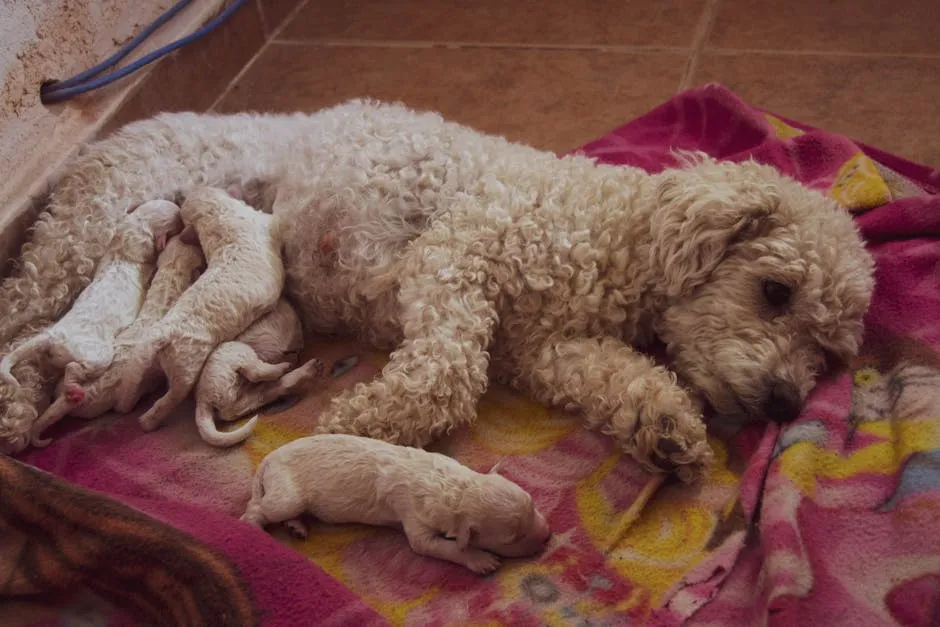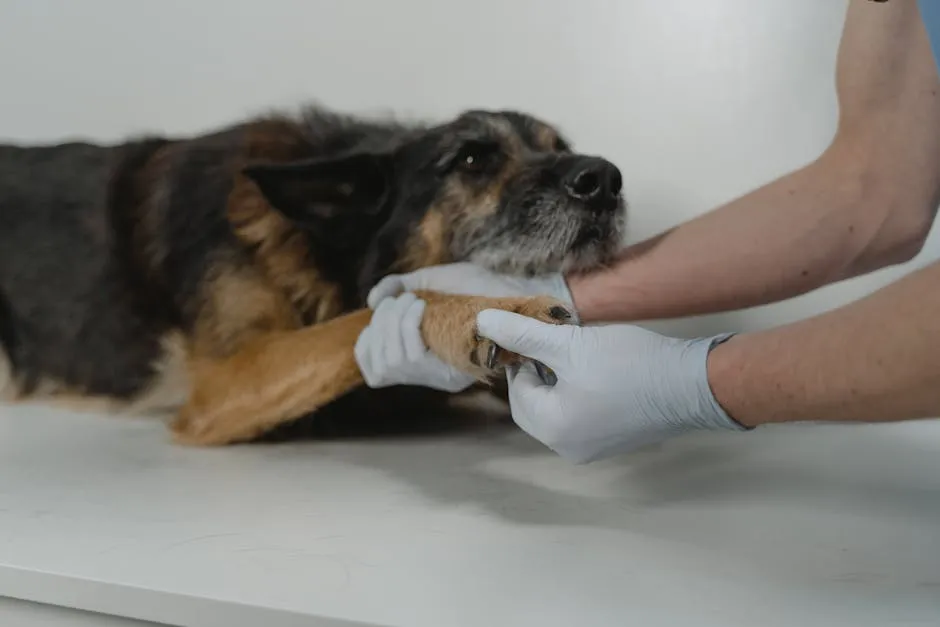Introduction
Doodle dogs have taken the canine world by storm with their irresistible charm and playful personalities. A cross between a Poodle and another beloved breed, these fluffy companions are not just cute; they are also known for their low-shedding coats, making them a favorite among allergy sufferers. Whether you’re a seasoned dog owner or a first-time pet parent, the allure of doodle dogs is hard to resist. In this post, we’ll dive deep into the fascinating world of doodle dogs, uncovering their history, characteristics, and the many unique breeds that fall under this delightful category. Let’s embark on this fluffy journey!
If you’re looking to keep your doodle’s coat looking fabulous, investing in a quality Pet Grooming Brush is essential. It helps manage those curls and keeps shedding to a minimum, ensuring your home stays fur-free and your doodle looks their best!

Summary
Doodle dogs, a term that encompasses various Poodle crossbreeds, have become increasingly popular for their low-shedding coats and friendly temperaments. Originating from a desire to combine the best qualities of their parent breeds, doodles have a rich history dating back to the late 1960s, when the first Goldendoodle was bred. This article will explore the diverse range of doodle breeds, including the Goldendoodle, Labradoodle, and Bernedoodle, while also addressing crucial considerations for potential owners, such as grooming needs and health concerns. Additionally, we’ll discuss the importance of responsible breeding practices and how to choose the right doodle breed for your lifestyle. By the end of this post, you’ll be equipped with all the knowledge you need to decide whether a doodle dog is the perfect addition to your family.
Training your doodle can be a breeze with the right tools, like a Dog Training Clicker. It’s a simple yet effective way to reinforce positive behavior and make training sessions fun for both you and your furry friend!

The History of Doodle Dogs
Doodle dogs have a colorful history that began in the late 1960s. The first doodle breed, the Goldendoodle, was created by Monica Dickens. She crossed a Golden Retriever with a Standard Poodle to combine the best traits of both pups. Her aim? A gentle, intelligent dog without the excessive shedding common in Golden Retrievers. Talk about a match made in doggy heaven!
Fast forward to the 1980s, when Wally Conron, an Australian breeder, introduced the Labradoodle. He faced a unique challenge: a couple needed a guide dog for the wife, who was blind, but the husband had severe allergies. After many attempts, Conron successfully bred a Poodle with a Labrador Retriever. Soon, the Labradoodle became a sensation. Conron even had to enlist a PR team to promote his new breed!
Over the years, the term “doodle” expanded to include various Poodle mixes, creating a delightful array of breeds. Each doodle combines Poodle intelligence and low-shedding coats with the unique traits of their other parent breeds. This expansion has made doodle dogs a favorite among families and dog lovers alike.
However, it’s essential to be cautious. Many doodles are marketed as hypoallergenic without scientific backing. While they tend to shed less than their non-Poodle counterparts, no dog is entirely hypoallergenic. So, if you’re looking for a cuddly companion that won’t make you sneeze, a doodle might be your best bet—but do your homework first! For more information on hypoallergenic dogs, check out this guide on hypoallergenic dogs.

If you’re interested in learning more about the characteristics of hypoallergenic breeds, you can refer to our comprehensive guide on hypoallergenic dogs.
The doodle dog craze has led to an increase in backyard breeders and puppy mills. These operations prioritize profit over the health and well-being of the dogs. Therefore, it’s crucial to choose a reputable breeder who values responsible breeding practices.
In conclusion, doodle dogs are more than just cute faces; they embody a fascinating blend of history and traits. From their charming beginnings with the Goldendoodle to the growing popularity of other doodle breeds, these fluffy companions continue to capture hearts. As we explore their unique characteristics, potential owners should remain informed about their care and the importance of ethical breeding practices. Choosing a doodle can lead to a lifetime of love and loyalty!

Characteristics of Doodle Dogs
Temperament and Behavior
Doodle dogs are a delightful blend of friendliness, intelligence, and social charm. They are known for their loving nature, making them perfect family pets. These pups thrive on companionship and often become attached to their human families. Whether you’re lounging on the couch or hosting a lively gathering, doodles will be your loyal sidekicks.
Their playful personality shines through in every interaction. Doodles love to engage in games, whether it’s fetching a ball or going for a brisk walk. Their high energy levels mean they require regular exercise. This keeps them happy and healthy while allowing their playful spirit to flourish.
Moreover, doodles are highly trainable. Their Poodle lineage contributes to their intelligence. They often pick up commands and tricks quickly. This makes training sessions enjoyable for both the owner and the dog. However, they can be quite spirited, so consistent training is essential to channel their energy positively.

Low-Shedding Qualities
One of the most appealing characteristics of doodle dogs is their low-shedding coat. Thanks to their Poodle heritage, these pups often inherit a curly or wavy coat that traps loose hair. This means less fur floating around your home!
For allergy sufferers, this is a game changer. While no dog is entirely hypoallergenic, doodles are often marketed as allergy-friendly. Their low-shedding qualities can help reduce allergens in the environment. Many families choose doodles for this reason, allowing them to enjoy a furry friend without the sneezes! To learn more about the best hypoallergenic dog breeds, check out our article on best hypoallergenic dog breeds for allergy sufferers.

If you want to explore more about hypoallergenic breeds, check our article on the best hypoallergenic dog breeds for allergy sufferers.
Additionally, the variety of coat types among different doodle breeds can suit various preferences. From the fluffy Goldendoodle to the shaggy Bernedoodle, there’s a doodle for everyone. Remember, regular grooming is crucial to maintain their beautiful coats.

Grooming Needs
Grooming a doodle dog can be a fun bonding experience. However, it’s essential to establish a routine. Typically, these pups need grooming every 4 to 6 weeks to keep their coats healthy and mat-free.
Start with brushing their fur at least once a week. This helps prevent matting and keeps their coat shiny. For doodles with curlier coats, more frequent brushing may be necessary—think of it as a spa day for your pup!
Invest in quality grooming tools. A slicker brush and a detangling comb will work wonders. Don’t forget about bathing! Use a gentle Dog Shampoo for Sensitive Skin to keep their skin healthy.
Also, pay attention to their ears and teeth. Regular ear cleanings and dental care are vital. Taking care of these aspects will ensure your doodle stays happy and healthy. Overall, grooming can be a delightful part of your doodle’s care routine, strengthening your bond with your furry friend.

Considerations for Potential Doodle Owners
Choosing a Reputable Breeder
When considering adding a doodle to your family, selecting a reputable breeder is crucial. Start by researching breeders in your area. Look for those who prioritize the health and well-being of their dogs over profit.
Visit the breeder’s facility if possible. A clean, organized environment is a good sign. Ask to meet the puppy’s parents. This gives you insight into their temperament and health. It’s essential to request health clearances for common issues in the breed. A responsible breeder will provide documentation and answer your questions.
Be wary of puppy mills or backyard breeders. They often neglect the health and socialization of their dogs. Avoiding these sources ensures a healthier, happier pup.

Health Concerns
Mixed breeds like doodles can inherit health issues from their parent breeds. Common concerns include hip dysplasia, allergies, and eye conditions. To mitigate these risks, ensure your breeder conducts health screenings for their breeding dogs.
Regular veterinary visits are essential. Schedule check-ups to monitor your doodle’s health. Vaccinations, parasite prevention, and dental care should not be overlooked.
Pay attention to any changes in behavior or health. Early detection can make a significant difference in treatment outcomes. By being proactive, you can help your doodle lead a long, fulfilling life.

Lifestyle Compatibility
Before bringing a doodle into your home, assess your lifestyle and energy levels. Doodles are active dogs that thrive on play and exercise. If you lead a busy lifestyle or prefer lounging at home, consider whether you can meet their needs.
Training is another essential aspect. Doodles are intelligent and eager to please, but they benefit from consistent training. If you’re a first-time dog owner, be prepared to dedicate time to training and socialization.
Finally, consider your living situation. Doodles come in various sizes, so ensure your home can accommodate their needs. With the right environment, a doodle will become a beloved member of your family, bringing joy and laughter for years to come.

The Doodle Dog Community
The doodle dog community is vibrant and welcoming. If you’re a doodle enthusiast, you’re in luck! Numerous online spaces allow you to connect with fellow doodle lovers. One of the best platforms for finding like-minded individuals is Facebook. Groups like “Goldendoodle Lovers” and “Labradoodle Owners” are buzzing with activity. You can share photos, ask questions, and exchange tips about grooming and training.
Instagram is another fantastic resource. Accounts like @doodleaddicts showcase adorable doodles in all their fluffy glory. You can find everything from grooming hacks to heartwarming stories. Plus, the hashtag #doodledogs brings together a treasure trove of doodle content. Get ready to scroll through endless cuteness!
Connecting with the doodle community can enhance your experience as a dog owner. Engaging with others helps you learn about their experiences, challenges, and joys. You’ll gain valuable insights and tips that can make your time with your doodle even more enjoyable.

But wait, there’s more! Events and meet-ups are great ways to bond with fellow doodle owners. Many cities host local gatherings where doodles and their humans can mingle. Check out local pet stores or parks for announcements. You might find an upcoming “Doodle Day” event near you! These gatherings are a fantastic way for your pup to socialize and for you to meet new friends.
Online resources also provide information about doodle events. Websites like Meetup.com often list pet-friendly gatherings. You can also explore local dog parks, which frequently host events. Don’t forget to look for breed-specific shows or contests. These events celebrate doodles and provide an opportunity for fun and friendly competition.
In summary, the doodle dog community is full of love and support. From Facebook groups to Instagram accounts, you’ll find a wealth of resources and connections. Engage with fellow doodle lovers and attend local events. Your doodle will thank you for the socialization, and you’ll enjoy the camaraderie of like-minded folks. So get out there and connect!
FAQs
What makes a dog a doodle?
A doodle dog is created when a Poodle is crossed with another breed. This intentional breeding aims to combine the best traits of both breeds. For instance, the Goldendoodle results from mixing a Golden Retriever and a Poodle. The Poodle’s genetics play a significant role in the doodle’s low-shedding coat, which is one of their most appealing features. This crossbreeding process not only enhances their looks but also brings together the intelligence and friendly nature of Poodles with the unique traits of the other breed.
Are doodle dogs hypoallergenic?
Many people believe doodle dogs are hypoallergenic, but let’s clear that up. While doodles tend to shed less than their non-Poodle counterparts, no dog is entirely hypoallergenic. Individual dogs may have different levels of allergens, depending on their genetics and coat type. Some doodles do produce fewer allergens, making them more suitable for allergy sufferers. However, it varies from one dog to another. If you’re considering a doodle for allergy reasons, it’s wise to spend time with the specific breed before making a commitment.
Why are doodle dogs so expensive?
The price of doodle dogs can make your wallet weep! So, why are they so pricey? First, there’s high demand. Many families want these designer breeds for their friendly temperament and low-shedding coats. Second, responsible breeders invest time and money into health screenings, proper breeding practices, and raising puppies in a nurturing environment. This costs money and is reflected in the price. Additionally, the popularity of doodle breeds has led to a surge in puppy mills and backyard breeders, which can drive up costs. Always choose a reputable breeder to ensure your pup’s health and well-being.
What are common health issues in doodle breeds?
Doodles, like all breeds, can face health issues. Some common concerns include hip dysplasia, allergies, and eye conditions. These issues may stem from either parent breed. Regular vet check-ups are essential for early detection of any health problems. Keeping up with vaccinations and preventive care can help ensure a long, healthy life for your doodle. Always consult with your veterinarian about the specific health concerns related to your doodle’s breed mix. After all, a healthy pup is a happy pup!

Conclusion
Doodle dogs are more than just a passing trend; they represent a delightful blend of affection, intelligence, and low-shedding companionship. As you consider adding a doodle to your family, remember the importance of research, responsible breeding, and understanding the unique traits of each breed. With the right knowledge, you’ll be well-equipped to welcome one of these adorable hybrids into your home and enjoy all the joy they have to offer.
And don’t forget to keep your doodle entertained! Interactive toys like a Dog Puzzle Feeder can stimulate their minds and keep them busy, preventing boredom and destructive behaviors!

Please let us know what you think about our content by leaving a comment down below!
Thank you for reading till here 🙂
For those traveling with your furry friend, a Pet Carrier Backpack is a must-have. It allows you to bring your doodle along on adventures, keeping them safe and comfortable while you explore!
All images from Pexels





